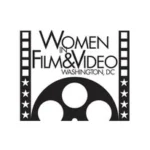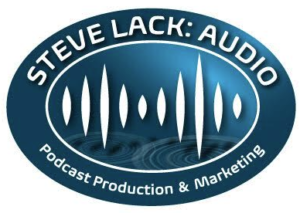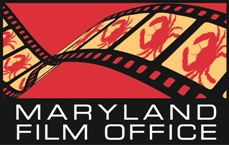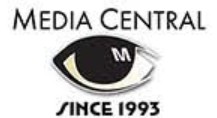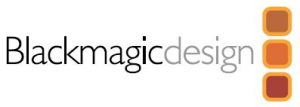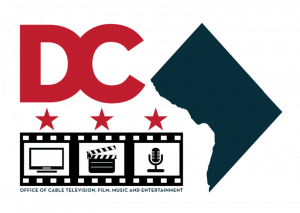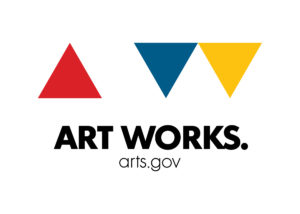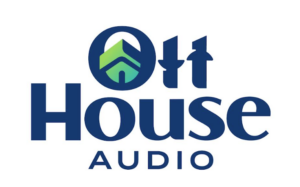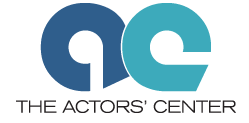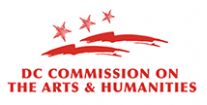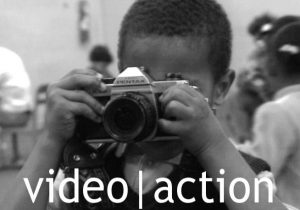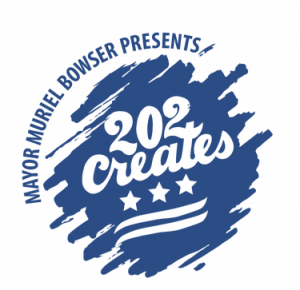Resources
Women in Film & Video DC ⟩ Resources
Women in Film & Video is a valued resource for Connections, Opportunities and Advocates. This section of the WIFV website provides you additional information on health and safety, regional resources, and industry reports.
Film Incentive Resources
10 Best States for Film Tax Incentives
Countries With The Best Film Incentives
DC Film Incentives
Tax Incentives by State – 2025
Trends in Film Incentives
Copyright Resources
Resources provided by the Copyright Alliance.
The DMCA Notice and Takedown Process
How To Register for a Copyright
How To Get Permission To Use a Song
Artificial Intelligence (AI) and Copyright
The Copyright Claims Board (CCB) Explained (A cheaper alternative to federal court for copyright holders)
COVID-19 Makeup Protocols
Information coordinated by Carolyn Marie (www.makeupbizz.com). Click here Carolyn Marie has COVID-19 Certification from Barbicide and COVID-19 Certification from Safe Sets International.
THE SAFE WAY FORWARD
A Joint Report of the DGA, SAG-AFTRA, IATSE and Teamsters’Committees for COVID-19 Safety Guidelines. Click here.
Filmmaker Support Directory
DocuMentality provides this list of practitioners as a resource. However, we do not endorse, vet, or take responsibility for any individual’s qualifications, methods, or the outcome of your experience. Your relationship with a practitioner is personal, and we encourage you to conduct your own research, ask questions, and ensure they are the right fit for your needs. Any decisions you make regarding therapy are solely your own, and we are not liable for any aspect of your engagement with these professionals. Click here.
Worldwide COVID-19 production guidelines
Compiled by American Film Market (AFM) – click here
Doc Society’s Safe & Secure Checklist
Developed on behalf of the Documentary Funders Group the checklist is designed to anticipate the risks film teams and participants face – physical, digital, journalistic, reputational, and legal – and prompt early awareness and planning. To see the checklist and Safe+Secure Handbook click here
Understanding the Signs of Age Discrimination
Women in Film & Video of Washington, DC (WIFV) provides our members with information about legal issues of interest and import. Below is information relating to the sometimes subtle signs of age discrimination in hiring as well as resources to assist if one experiencing this form of discrimination. Click here.
Resources to Report Sexual Harassment
Women in Film & Video provides our community with information about legal issues of interest and import. Below is information relating to sexual harassment laws and enforcement, including links to the abundant (and free) resources available from federal, state, and county agencies in the DMV Metro area. Click here.
Resources from HelpingSurvivors.org for Victims of Domestic Violence and Sexual Abuse. Click here.
Assessing Hostile Work Environments
In the wake of recent high-profile sexual harassment claims, many employees (and employers) are asking: what constitutes a “hostile work environment”? Women in Film & Video of Washington, DC (WIFV) endeavors to provide our members with information and resources about legal issues of interest and import. Click here for some basic information regarding the law on employment discrimination and hostile work environments.
Best Practices for Emailing Job Postings
Women in Film & Video is always happy to post job listings that may be beneficial to our members. The following templates should be used when sending this information to our office or directly to the listserv. Special thanks to WIFV member Ryan Pratzel and Mikael Manoukian for helping to develop this. Click here to download the templates.
Best Practices for Internships
The WIFV Board of Directors has approved guidelines for unpaid internships to assist WIFV members who are considering offering or accepting such situations. WIFV took this action in response to repeated and ongoing discussion of this topic on the listserv and recent high-profile class-action lawsuits. WIFV’s interest is for those of our membership seeking internships to have internships to find, and for those of our members who provide internships to offer them with confidence that their internships meet the Department of Labor’s and other governing bodies’ requirements. Best Practices for Internships are available here.
Fair Use for Filmmakers
Fair Use is an important right for filmmakers. We are lucky to have the AU Center for Media & Social Impact leading the discussion on this subject. A page with info on fair use for documentarians is here. The Infographic: Can I Employ Fair Use In My Documentary? is available here. A handout, Documentarians, Fair Use and Best Practices is available here. Pat Aufderheide, Director of CMSI, provided this powerpoint at a recent presentation, Making a Living in a Fair-Use-Friendly World.
Screenwriting Contest Transparency
Women of Color Unite demands transparency and accountability in TV and feature film screenwriting competitions, labs, fellowships, and coverage services. This includes making information about the demographics of readers and the judging process readily available, as well as requiring readers to receive sensitivity training. These steps will allow writers to make informed decisions regarding which competitions to enter and services to use. Additionally, we hope that these steps will decrease the odds of readers’ critiques coming from a lack of cultural competency, or worse, racist, sexist, homophobic or otherwise biased perspectives. More info on the Screenwriting Contest Transparency here. Read the Screenwriting Contest Transparency Paper here.
Financial Resources
If you are support staff, an assistant, or anyone else on the first rung of their industry career in need of resources, visit payuphollywood.com/.
If you are an entertainment industry worker looking for emergency financial assistance, visit https://entertainmentcommunity.org/am-i-eligible-help
Documentary Accountability Working Group (DAWG) Resources
Inclusion Resources from PAAL
Policy is a Love Language; How are You Speaking it?
The New Standard of Care for Caregivers
Parent Artist Advocacy League for the Performing Arts + Media (PAAL) paaltheatre.com
Statistics about Women in Media Industry
If you are looking for statistics about women in the film industry, we suggest the Celluloid Ceiling reports by Martha Lauzen, PhD. Click here for the most recent report
Dr. Stacy L. Smith and the Annenberg Inclusion Initiative prepare the most comprehensive intersectional analysis of directors of motion pictures. See their research reports here. The most recent Inclusion in the Director’s Chair study covers 18 years and 1,800 films, spanning 2007 to the top movies of 2024. Read the full study here. Inclusion in the Director’s Chair: Analysis of Director Gender and Race/Ethnicity Across the 1,600 Top Films from 2007 to 2022 – You can read it here.
Inequality Across 1,600 Popular Films: Examining Gender, Race/Ethnicity & Age of Leads/Co Leads from 2007 to 2022 Read full report here
Despite the high profile inclusion of films written and directed by women at this year’s Sundance Film Festival, a gender gap still persists in the American independent film industry, according to a study conducted by researchers at USC’s Annenberg School for Communication and Journalism that was commissioned by the Sundance Institute and Women in Film Los Angeles. Only 24% of all movies programmed for the Festival between 2002 and 2012 were directed by women, the study found, and women are more likely to direct documentaries than narrative films. “Female directors are more likely to feature girls and women on screen than male directors,” said study authors Stacy L. Smith, Katherine Pieper and Marc Choueiti. (“Sundance 2013: Women lag men even in independent film, study finds”)
The International Women’s Media Foundation’s Global Report on the Status Women in the News Media reveals that men occupy 73% of the top management jobs and 64% of reporting jobs of the over 500 companies in almost 60 countries surveyed. The study provides more evidence supporting the challenges of women worldwide, in all fields of media, as well as identifying both glass ceilings and companies with model gender-parity policies. The full report is available here.
The Geena Davis Institute on Gender in Media is leading the largest research project ever undertaken on gender in children’s entertainment. Dr. Stacy Smith and her team at USC’s Annenberg School for Communication carried out several discrete studies, including ones on children’s television and film. Full reports are available here. Summaries can be found here:
Key Findings of Changing the Status Quo: Industry Leaders’ Perceptions of Gender in Family Films
Key Findings of Gender Disparity On Screen and Behind the Camera in Family Films
Key Findings of Gender Stereotypes: An Analysis of Popular Films and TV
Navigating the Challenges of Women in STEM & Gaming by Sarah Perowne
Inclusion of Disabled People in Media
Here are some resources and readings for people with disabilities in the screen industries, and what you can do to support:
- The Film Event Accessibility Working Group harnesses community power to increase accessibility at film festivals and events throughout our industry. FREE accessibility resources including an event accessibility checklist, vendor database and more to help organizations create more accessible film festivals and events.
- 1IN4 is an intersectional coalition of disabled creatives currently working in Hollywood, focused on long-term institutional shifts to increase employment and authentic representation of disabled people, formed by talent manager Eryn Brown
- Behind the Scenes: The State of Inclusion and Equity in TV Writing 2025 Report by Think Tank for Inclusion & Equity (TTIE)
- RespectAbility has put together the Hollywood Disability Inclusion Toolkit
- The Media Access Awards has produced a Best Practices Guide for Hiring Writers with Disabilities, as well as a Disability List curated in partnership with The Black List and the Writers Guild of America Disabled Writers Committee
- FWD-Doc is a group of filmmakers with disabilities working in documentary film
- The Easter Seals Disability Film Challenge is a contest that gives filmmakers with and without disabilities the opportunity to tell unique stories showcasing disability
- The Ruderman Foundation’s research and resources on inclusion in entertainment
- Amazon Studios announced a new inclusion policy and playbook that intends to increase representation of people with disabilities in its productions
- The Disability Rights Education and Defense Fund (DREDF) is a national civil rights law and policy center that can offer advocacy and support for those with disabilities
- Think Tank for Inclusion & Equity (TTIE), a collaborative project of WIF, has created a #WriteInclusion factsheet with tips for accurate representation of disabled people
- Actors With Disabilities In Film/Hollywood Report from Octane Seating is available here.
Archival Producer Resources
A new guide on Working with Archival Producers available here.
Intimacy Coordinator Resources
In case you were unable to attend the WIFT-US hosted Intro to Intimacy Coordinators event featuring Nikki Tomlinson, find the replay and helpful links here – Replay Link
Access Passcode: Fn4!E*#i
Professional Links:
https://www.idcprofessionals.
https://www.
SAG-AFTRA resources:
https://www.sagaftra.org/
https://www.sagaftra.org/
On set resources:
https://ganosales.tv/products/
https://bratenders.com/
https://www.walmart.com/ip/
https://unclockable.com/
Go Green With Your Production
Want to “green” your production? The School of Communications at American University has issued: Code of Best Practices for Sustainable Filmmaking.
The PGA published a Green Production Guide & Toolkit. You can access a zip file with those resources here.
Speaking of “green”: Want to know which production studios in the DC/MD/VA area have a green screen? Click here.
Podcasting
The Ultimate List of Movie Podcasts
Media, Diversity & Social Change Initiative
Media, Diversity, & Social Change Initiative recently published a report entitled Inequality in 700 Popular Films: Examining Portrayals of Gender, Race, & LGBT Status from 2007 to 2014. The full report can be read here!
Permits for Filming in DC
Film permits are issued by the Office of Cable Television, Film, Music and Entertainment (OCTFME). Please read the Film Permit Application Instructions prior to completing a Film Permit Application. You can also contact OCTFME directly at 202-727-6608 with any questions or concerns. Complete the Permit Application (download PDF version)
The Mid-Atlantic Production Guide combines resource people from across the region.
Resources for Youth
Diversity in Film Youth Workshop is a free workshop guide aimed at grade schoolers to educate them on disparities in the film industry, why representation matters, and highlighting the feats of female filmmakers. Created as a Girl Scout Gold Award Service Project, recent DMV high school graduate Coral De la Cruz-Novey put together a workshop complete with a worksheet, teacher guide, documentary, sorting activity, and slideshow. The aim of this workshop is to aid students to gain a broader understanding of what diversity in media looks like, investigate hurdles that minorities face (as highlighted by women), but most importantly to help every student find why diversity is important, and how they can find their own. Access the workshop resources here.
This workshop may be aimed at grade schoolers, but is a helpful resource for anyone wanting to learn more about representation, finding their own diversity, and educating themselves about the journey of women in the film industry.
Expand your learner’s skills in communication, creative thinking, and self-expression with a range of highly engaging and hands-on classes. Communications & Language Arts Courses for Kids
Online Cyber Security Degrees: https://
Cybersecurity Resource Guide for Libraries: https://
Journey to Success
A Guide to Women on TV: Understanding the History of Representation of Women in the Media
A Guide to Making Hollywood Less White, By the Filmmakers Who Have Done It
Academy of Television Arts & Sciences Code of Ethics and Standards of Professional Conduct
A.C.L.U., Citing Bias Against Women, Wants Inquiry Into Hollywood’s Hiring Practices
Can She Pull It Off? (Or, How to Hire Women Directors)
Examining the Prevalence and Portrayal of Girls and Teens in Popular Movies
Media Arts Resources – For Individuals
Oscars: Examining Gender Bias in the Documentary Categories
Barriers and Bias: The Status of Women Leadership
Exploring the Careers of Female Directors: Phase III
Gender & Short Films: Emerging Female Filmmakers and the Barriers Surrounding their Careers
Inclusion or Invisibility? Comprehensive Annenberg Report on Diversity in Entertainment
Seniors on the Small Screen: Aging in Popular Television Content
The Gender Wage Gap – All You Need to Know in 2022
Inclusion in the Director’s Chair 2019
Supporting Women in Business Resource Guide
Women and Careers in STEM
In an effort to make information focused on STEM (Science, Technology, Engineering, Math) education and careers more accessible to women, we at BestColleges.com have curated a Women and Careers in STEM series for those considering the field. Included are degree overviews, job boards, and perspectives from female professionals already in the industry. Take a look here:
Where Women Study STEM: https://www.bestcolleges.com/
Women in STEM: https://www.bestcolleges.com/
STEM Careers: https://www.bestcolleges.com/
Resources for Women in Computer Technology from Purdue University Global: https://www.purdueglobal.edu/blog/information-technology/resources-women-computer-technology/
History of Women and Computers by Jonathan O’Brien (recommended by Kids Cause): https://www.certstaff.com/classes/history-women-computers.html
Women in STEM – Closing the Gender Gap from Master’s in Data Sciences: https://www.mastersindatascience.org/resources/a-guide-for-women-in-stem-closing-the-gender-gap/
Bridging the Gender Gap in STEM with Remote Work from remote.com: https://remote.com/blog/bridging-the-gender-gap-in-stem-with-remote-work
A Guide for Women in Tech by TechGuide: https://techguide.org/resources/women-in-tech/
Career Resources for Women in Tech and Finance: https://tipalti.com/career-resources-for-women-in-tech-and-finance/
Guide to Scholarships for Women in STEM: www.madisontrust.com/client-re
Financial Resources for Women in STEM: https://couponfollow.com/research/financial-resources-for-women-in-stem
